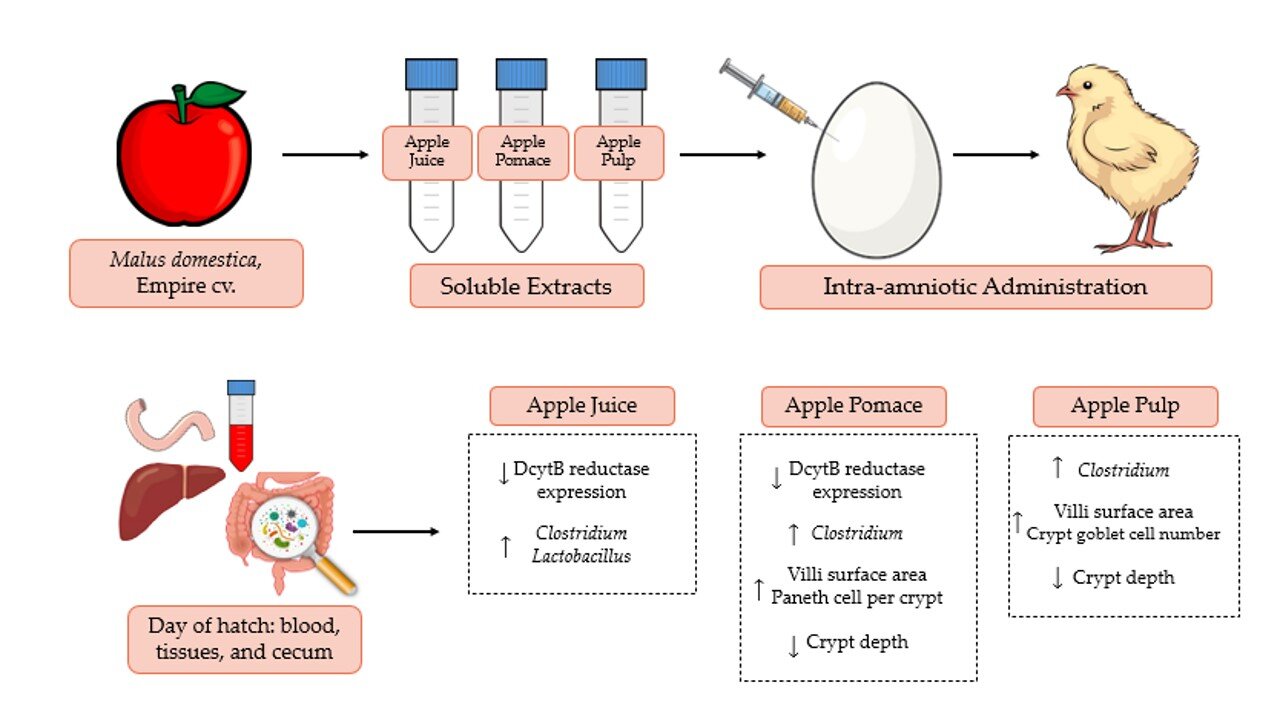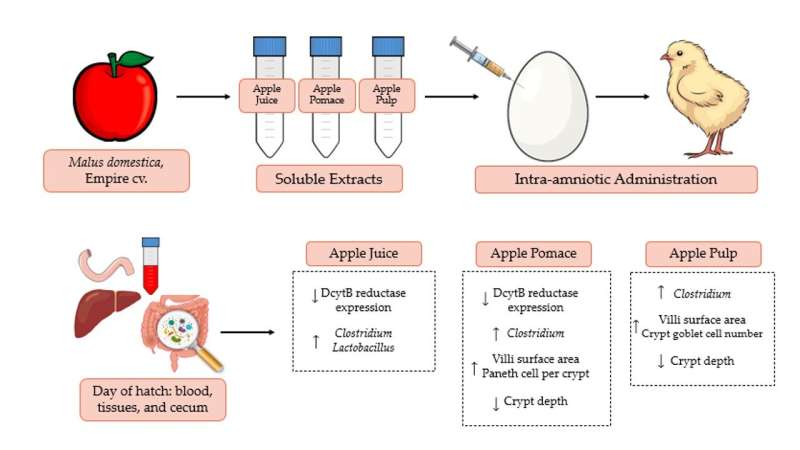

An apple a day may keep the livestock veterinarian away. Juice, pulp and other waste from Empire apples, when injected into chicken eggs before hatching, show signs of boosting the animal’s intestinal health, according to Cornell research.
“Apples are one of the top fruits produced in the United States and we have long been aware of their health benefits,” said lead author Cydney Jackson, a doctoral student in the field of food science.
“In our study, we were able to see how an apple—specifically, the Empire apple developed at Cornell in the 1940s—improved the intestinal health of production broilers, and we observed signs for the overall good health of the bird,” Jackson said.
The researchers injected juice, pomace and pulp—in vivo—into the amniotic fluid of the developing embryo inside a chicken egg. After the eggs were hatched, relevant samples were collected for analyzes.
The researchers found that introducing apple juice and pomace into the egg can increase the young chicken’s transport system for amino acids, improve the bioavailability of iron, boost the microbial populations in the animal’s large intestine and support the growth of potentially beneficial gut bacteria.
“Apples are comprised of bioactive constituents such as phytochemicals and prebiotics that could help intestinal health and the gut microbiome,” said senior author Elad Tako, associate professor of food science in the College of Agriculture and Life Sciences (CALS) and a co-author of the paper.
Each year, the U.S. sees nearly $20 billion in apple sales, with an estimated 5 million tons of the fruit produced annually in the U.S. within the last decade, according to the paper.
For juice and apple production, about 33.4 million bushels of apples were used in 2021-22, according to the U.S. Apple Association. Nearly 175,350 metric tons of apple pomace—the fibrous waste—is produced annually and typically tossed away in landfills, according to the paper. This damages the environment, as it disrupts the carbon-nitrogen ratio of soil due to the pomace’s sugar content.
“Pomace is treated like industrial waste now. If we can potentially use the pomace, which is rich in nutrients, we can add it to the diet of broilers,” Tako said. “We can improve the nutrition in their feed and achieve productivity in a more natural way—and potentially reduce the use of added dietary chemicals.”
The researchers said this was an initial study to demonstrate the potential effect for adding apple waste to chicken feed and they indicated a need for long-term studies.
Said Tako, “Potentially, we’ll be upscaling industrial waste that is currently being discarded. That’s sustainable.”
The research is published in the journal Nutrients.
More information:
Cydney Jackson et al, Empire Apple (Malus domestica) Juice, Pomace, and Pulp Modulate Intestinal Functionality, Morphology, and Bacterial Populations In Vivo (Gallus gallus), Nutrients (2022). DOI: 10.3390/nu14234955
Provided by
Cornell University
Citation:
Feeding apple waste to chickens may boost their health (2022, December 13)
retrieved 13 December 2022
from https://phys.org/news/2022-12-apple-chickens-boost-health.html
This document is subject to copyright. Apart from any fair dealing for the purpose of private study or research, no
part may be reproduced without the written permission. The content is provided for information purposes only.